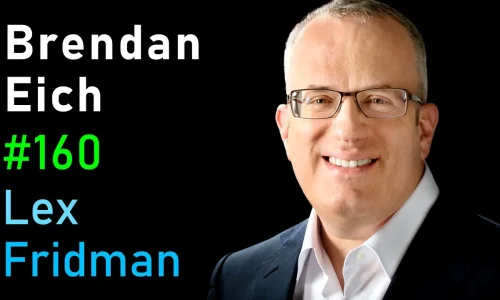See all Lex Fridman transcripts on Youtube

Brendan Eich: JavaScript, Firefox, Mozilla, and Brave | Lex Fridman Podcast #160
2 hours 59 minutes 18 seconds
🇬🇧 English

Omnivision Solutions Ltd
- Getting Started
- Create Transcript
- Pricing
- FAQs
- Recent Transcriptions
- Roadmap